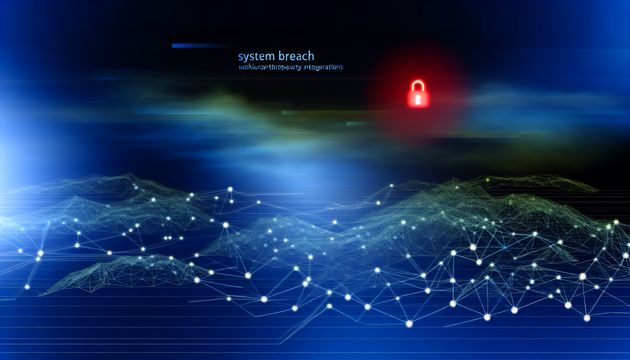
Oracle's Security Incident: Communication Challenges and Trust Implications
Oracle’s recent security incident has sparked significant debate over its communication strategy. Initially, Oracle denied any breach of its Oracle Cloud Infrastructure (OCI), claiming that the incident involved only “obsolete servers” and not the current cloud infrastructure (BleepingComputer). However, independent analyses and customer confirmations have contradicted this narrative, suggesting that customer data may have been compromised (BlackKite). This situation raises critical questions about Oracle’s use of language and its impact on stakeholder trust.
Oracle’s Communication Strategy: Wordplay or Clarity?
Oracle’s Initial Denial and Subsequent Admissions
Oracle’s communication strategy regarding the security incident has been characterized by a series of denials followed by partial admissions. Initially, Oracle categorically denied any breach of its Oracle Cloud Infrastructure (OCI), emphasizing that no OCI customer data was compromised. This stance was communicated through official statements and emails, asserting that the incident involved “obsolete servers” and not the current cloud infrastructure (BleepingComputer).
However, independent cybersecurity analyses and customer confirmations have challenged Oracle’s narrative. Reports indicate that data samples provided by the hacker were authenticated by several Oracle customers, suggesting a breach of customer data despite Oracle’s denials (BlackKite). This discrepancy raises questions about Oracle’s communication strategy and whether it constitutes deliberate wordplay to downplay the severity of the incident.
The Use of Specific Terminology to Shape Perception
Oracle’s choice of language in its communications has been scrutinized for its potential to mislead stakeholders. By distinguishing between “Oracle Cloud” and “Oracle Cloud Classic,” Oracle appears to have employed a strategic use of terminology to deflect responsibility. Cybersecurity expert Kevin Beaumont criticized this approach, noting that Oracle’s wordsmithing allows the company to deny a breach of “Oracle Cloud” while acknowledging issues with “Oracle Classic,” which is still part of Oracle’s cloud services (DoublePulsar).
This strategy of using specific terms to shape perception has implications for customer trust and Oracle’s reputation. By focusing on technical distinctions, Oracle may be attempting to minimize the perceived impact of the incident, but this approach risks alienating customers who feel misled by the company’s communications.
Customer Reactions and Trust Implications
The response from Oracle’s customers has been mixed, with some expressing dissatisfaction with the company’s handling of the incident. The lack of transparency and perceived evasiveness in Oracle’s communications have led to criticism from cybersecurity experts and customers alike. Reports indicate that Oracle’s attempts to redirect communications with the threat actor through external channels, such as ProtonMail, have further fueled suspicions of information containment (Information Age).
The trust implications for Oracle are significant. As a provider of cloud services, Oracle’s reputation for security and transparency is crucial to maintaining customer confidence. The perceived lack of openness in addressing the security incident may lead to long-term damage to Oracle’s brand and customer relationships.
Expert Criticism and Industry Impact
Cybersecurity experts have been vocal in their criticism of Oracle’s handling of the incident. The company’s communication strategy has been described as an attempt to avoid responsibility through wordplay, which experts argue is not acceptable for a technology giant with significant cybersecurity responsibilities (Security Boulevard).
The broader industry impact of Oracle’s communication strategy is also noteworthy. As a major player in the cloud services market, Oracle’s actions set a precedent for how similar incidents may be handled by other companies. The criticism leveled at Oracle highlights the importance of transparency and accountability in cybersecurity communications, and the potential consequences of failing to meet these standards.
Recommendations for Improved Communication
In light of the criticisms and challenges faced by Oracle, several recommendations can be made to improve its communication strategy in the future:
-
Prioritize Transparency and Clarity: Oracle should avoid technical jargon and distinctions that may confuse or mislead stakeholders. Providing clear and concise information about the nature and impact of security incidents is essential for maintaining customer trust.
-
Engage in Proactive Communication: Oracle should provide regular updates and address concerns promptly. This approach would demonstrate a commitment to accountability and foster a sense of partnership with customers in addressing security challenges.
-
Involve Independent Third-Party Experts: Oracle should consider involving independent third-party experts to validate its findings and provide an unbiased assessment of the incident. This step would enhance credibility and reassure customers that Oracle is taking the necessary steps to address the situation comprehensively.
By adopting these recommendations, Oracle can improve its communication strategy and rebuild trust with its customers, ultimately strengthening its position in the competitive cloud services market.
Final Thoughts
Oracle’s handling of the security incident underscores the importance of transparency in cybersecurity communications. The company’s strategic use of terminology, while perhaps intended to mitigate perceived damage, has led to significant criticism and potential erosion of customer trust (DoublePulsar). Moving forward, Oracle and other industry players must prioritize clear and honest communication to maintain credibility and customer confidence. Engaging third-party experts and providing regular updates can help rebuild trust and set a positive precedent for handling future incidents (Security Boulevard).
References
- BleepingComputer. (2025). Oracle says obsolete servers hacked, denies cloud breach. https://www.bleepingcomputer.com/news/security/oracle-says-obsolete-servers-hacked-denies-cloud-breach/
- BlackKite. (2025). Oracle cloud breach claims, denials, and the reality of cloud security risks in TPRM. https://blackkite.com/blog/oracle-cloud-breach-claims-denials-and-the-reality-of-cloud-security-risks-in-tprm/
- DoublePulsar. (2025). Oracle attempt to hide serious cybersecurity incident from customers in Oracle SaaS service. https://doublepulsar.com/oracle-attempt-to-hide-serious-cybersecurity-incident-from-customers-in-oracle-saas-service-9231c8daff4a
- Security Boulevard. (2025). Oracle cloud breach redux. https://securityboulevard.com/2025/04/oracle-cloud-breach-redux-richixbw/



